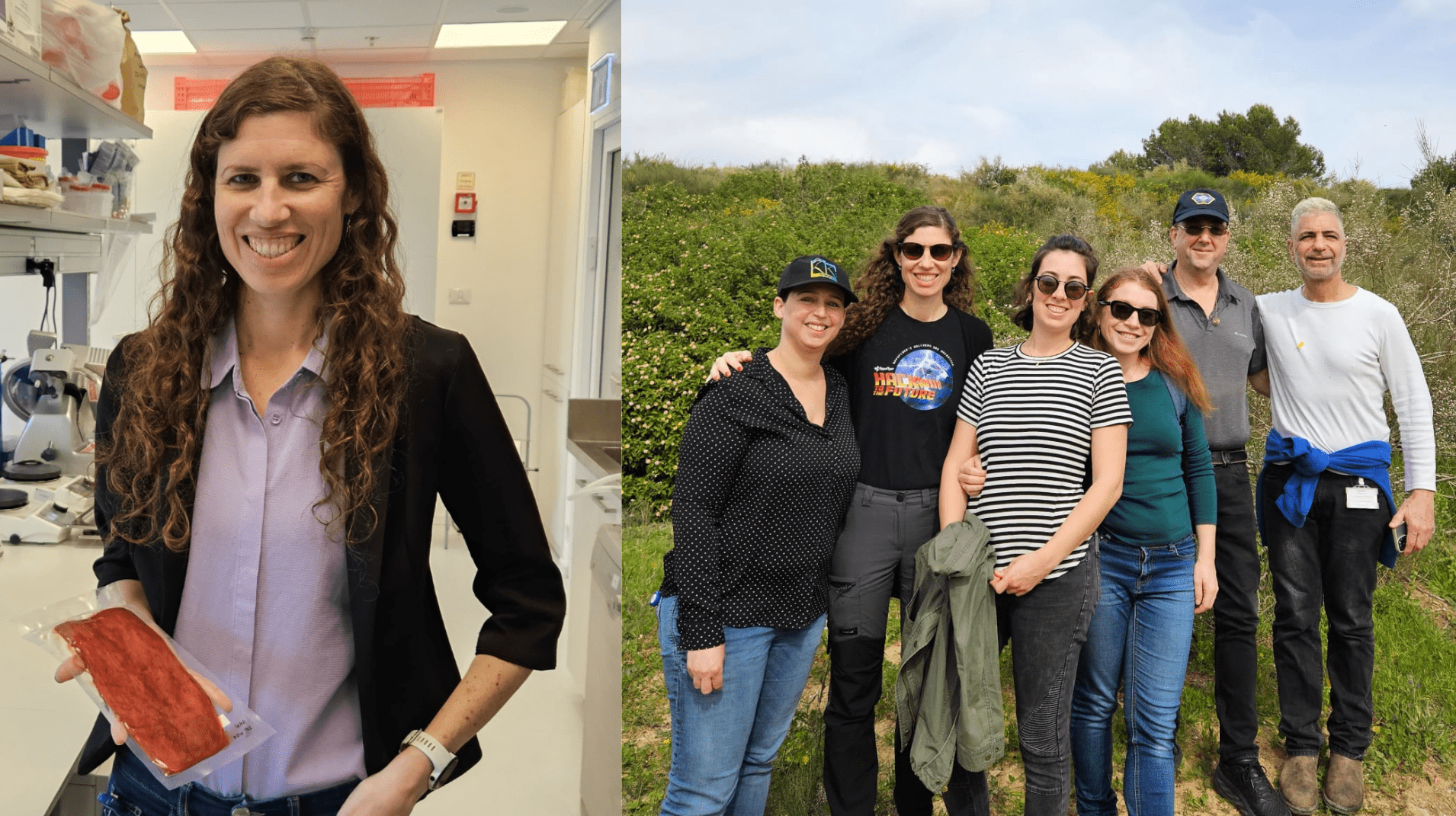
Maytal – thank you for sitting down to chat with us. Tell us about your role at Aleph Farms.
Certainly. I’m the Director of Food Technology and Product Development here at Aleph. I lead our Food Tech team, which includes several employees as well as consultants and food science students from the Faculty of Agriculture, Food and Environment down the street in Rehovot – where Aleph is headquartered.
My team and I are responsible for major aspects of the cultivated beef steaks that Aleph grows. This includes steps throughout the production process.
For example, as part of production, young cells are transferred into separate cultivators to mature into different cell types. We support and give structure to these cells using a plant protein matrix, and my team plays a major role in designing this matrix.
We also oversee stages of production much closer to the end, such as fine tuning and the final product’s culinary innovation.
So your background is in food science, yes?
Actually, not really! My background is in biomaterials. Specifically, biomedical engineering for medicine and human health.
I hold degrees in biotechnology engineering and neuroscience, and my PhD research focused on developing bioadhesives for healing wounds.
So you had never worked in food technology and suddenly you found yourself leading a food technology team? Tell us how this happened!
Believe it or not, I first learned about Aleph Farms through its space program, Aleph Zero. I love space and the stars. I have a telescope at home and routinely stargaze. I deliver lectures for kids as part of my volunteer work with SpaceIL. So I remember coming across Aleph’s work in this regard – deploying cellular agriculture for deep-space exploration – and was impressed.
Of course, this was merely an initial introduction to the company. Later on, it became much more practical. I was able to actually join the team and lead on the R&D front. That’s really what I brought – extensive experience and familiarity with R&D processes.
Since taking on this role, I’ve learned a thing or two about food technology myself. Still, it’s not lost on me that I’m leading the food tech team, yet I’m the only one who’s not a food technologist by training!
What does Aleph’s Food Tech R&D look like?
It’s atypical – that’s for sure. I may have come from a strong R&D background, but I had never seen an R&D lab with an oven in it. Where my team and I call home, we taste everything.
We’re a diverse bunch. Some of us are straight from school, whereas others have worked in food technology for over 15 years. Aleph’s in-house chef, Amir Ilan, is part of the food technology team.
We’re wildly different characters but all of us are eager to succeed. There’s so much collaboration happening in order to meet tight deadlines with the quality assurance and regulatory affairs teams. We bond as a group through these experiences.
Overall, I’d say our best qualities are curiosity and passion. That, to me, is what makes my team so special.
You talked about your interest in space and the stars. Any other hobbies?
I love the water almost as much as I love the night sky. I began swimming in fourth grade and never looked back. Since 2018, I have taught swimming on a weekly basis.
I am also a trained medic and have volunteered for many years in Magen David Adom, which is Israel’s national emergency medical response organization. The name means “Red Star of David” in Hebrew, as it’s our equivalent of the Red Cross. When I am called up to reserve military duty, I participate in this framework.
Do you miss working in health and medicine?
Sometimes, yes. But there’s a reason I’m at Aleph. I understand the importance of what we’re doing and the impact we will have. We’re focused on solving some of humanity’s biggest challenges, from food insecurity to biodiversity loss.
Plus there is a huge public health component to what we do. Health & Nutrition is one of the four pillars of our comprehensive sustainability model; we are determined to ensure the quality, safety and nutritional value of our products. Our production process is antibiotic-free (reducing the risk of antibiotic-resistant bacteria) and uses zero animal component inputs other than the animal cells themselves (reducing the risk of zoonotic diseases).
I wouldn’t have envisioned being in this role several years ago, but the best things in life often come as surprises.
